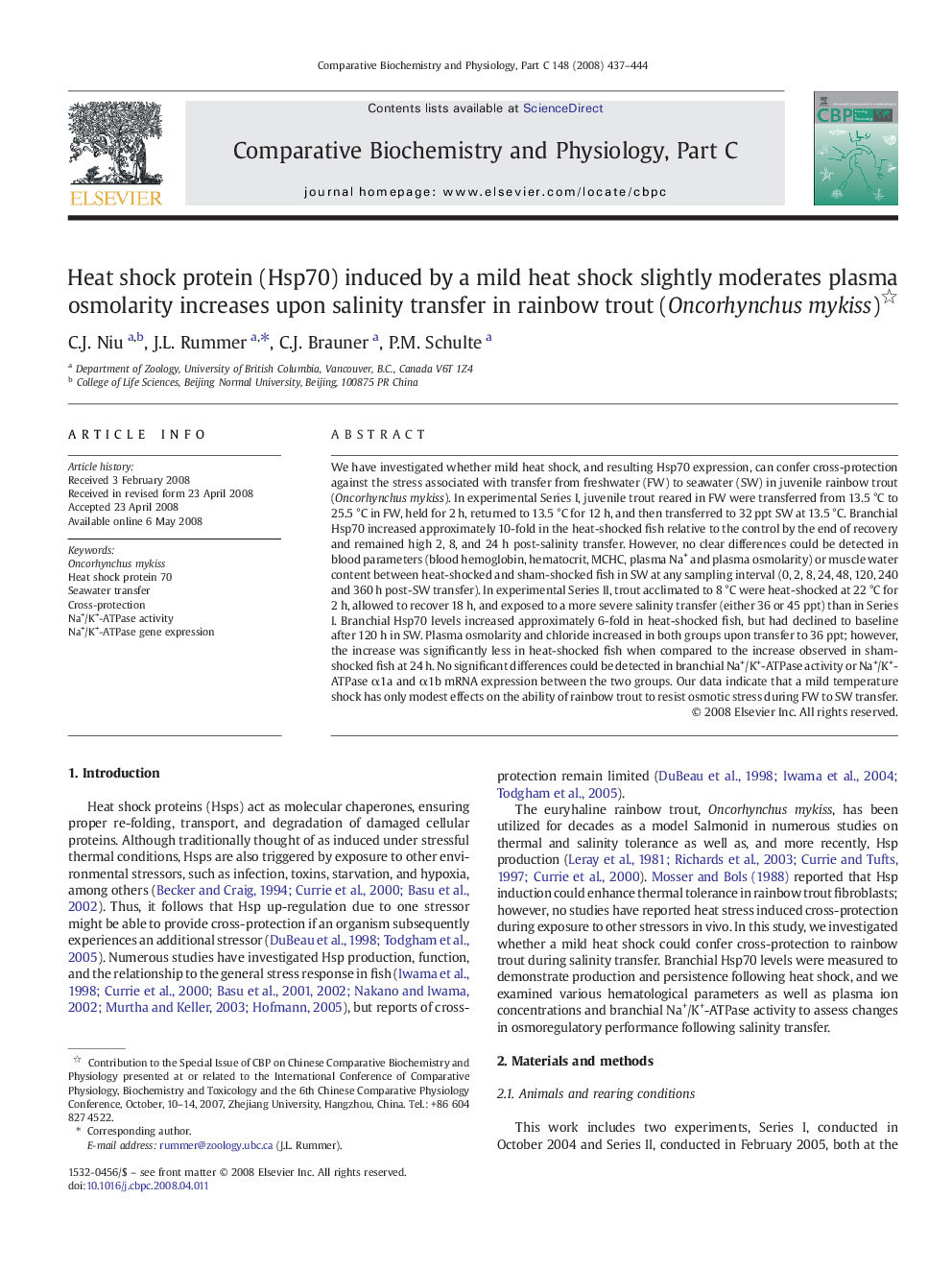| کد مقاله | کد نشریه | سال انتشار | مقاله انگلیسی | نسخه تمام متن |
|---|---|---|---|---|
| 1977752 | 1061512 | 2008 | 8 صفحه PDF | دانلود رایگان |

We have investigated whether mild heat shock, and resulting Hsp70 expression, can confer cross-protection against the stress associated with transfer from freshwater (FW) to seawater (SW) in juvenile rainbow trout (Oncorhynchus mykiss). In experimental Series I, juvenile trout reared in FW were transferred from 13.5 °C to 25.5 °C in FW, held for 2 h, returned to 13.5 °C for 12 h, and then transferred to 32 ppt SW at 13.5 °C. Branchial Hsp70 increased approximately 10-fold in the heat-shocked fish relative to the control by the end of recovery and remained high 2, 8, and 24 h post-salinity transfer. However, no clear differences could be detected in blood parameters (blood hemoglobin, hematocrit, MCHC, plasma Na+ and plasma osmolarity) or muscle water content between heat-shocked and sham-shocked fish in SW at any sampling interval (0, 2, 8, 24, 48, 120, 240 and 360 h post-SW transfer). In experimental Series II, trout acclimated to 8 °C were heat-shocked at 22 °C for 2 h, allowed to recover 18 h, and exposed to a more severe salinity transfer (either 36 or 45 ppt) than in Series I. Branchial Hsp70 levels increased approximately 6-fold in heat-shocked fish, but had declined to baseline after 120 h in SW. Plasma osmolarity and chloride increased in both groups upon transfer to 36 ppt; however, the increase was significantly less in heat-shocked fish when compared to the increase observed in sham-shocked fish at 24 h. No significant differences could be detected in branchial Na+/K+-ATPase activity or Na+/K+-ATPase α1a and α1b mRNA expression between the two groups. Our data indicate that a mild temperature shock has only modest effects on the ability of rainbow trout to resist osmotic stress during FW to SW transfer.
Journal: Comparative Biochemistry and Physiology Part C: Toxicology & Pharmacology - Volume 148, Issue 4, November 2008, Pages 437–444